What's On This Page?
ToggleMedications aren’t always used for what they were intended for. Many drugs are FDA approved for one condition, but later on, after use on the mass population, new valuable uses are found for the same drug. Since it takes time and money to bring a drug to full FDA-approved status, the medications are simply ordered by physicians and other prescribing practitioners for what’s called “off-label” use.
We see this a lot with cancer therapies and several other diseases. A medication not approved for use in breast cancer for example, but useful for stomach cancer may still be used in a breast cancer patient. Or a medication not even typically used as chemotherapy may still be prescribed as an adjunctive because it makes the chemo drug work better. The issue is controversial due to suitability and potential toxicity, but nevertheless, off-label use of nonchemo drugs frequently occurs.
Alzheimer’s disease and Parkinson’s typically employ off-label drugs in their treatment. It’s very common. And then we saw the pandemic where complications in the lungs due to the infection required doctors to think fast on their feet! Time was (is) of the essence.
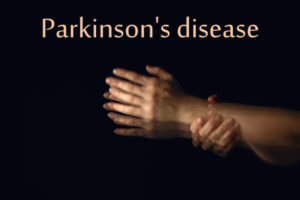
Think back to the spring and summer of 2020, there were dozens if not hundreds of medications being prescribed all over the world (all off-label) just to determine what would help people recover faster, or block ACE receptors, or minimize pulmonary fibrosis. These ‘tests’ with various medications are still going on, just unreported because the drugs are used off-label in private clinical settings.
Doctors prescribe drugs for their off-label use every single day!
It’s not unusual at all, even though you may not have heard of it until today. One estimate I found states that 1 out of every 5 prescriptions written is to take advantage of a well-known, but it’s actually an off-label use!
One paramount factor to keep in mind is that the medications used are already FDA-approved, they are not new drugs or new molecular compounds. The drugs HAVE been around the block, prescribed by the millions over the years, and sometimes they’ve been FDA approved for decades! Here is a guidance DOCUMENT that the FDA has posted in case you’d like to understand more about the rules that physicians must follow.
Physicians are most apt to prescribe off-label medications for children, or for patients facing life-threatening or terminal disorders. They are not usually writing for conditions that have FDA-approved drugs that work, and are readily available right now. They’re writing for a drug to capitalize on its off-label use because they either know it works well, or they know that time is of the essence. When you read the medication list below, you will see how every minute matters in some cases.
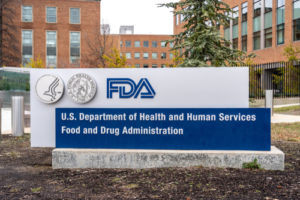 You might wonder why doesn’t the drug company just get the FDA to approve their drug for other useful indications. It is probably due to two things: Time and money. Each time the FDA approves a drug for a particular use, the maker has to provide studies and clinical evidence to prove its benefits for that specific use.
You might wonder why doesn’t the drug company just get the FDA to approve their drug for other useful indications. It is probably due to two things: Time and money. Each time the FDA approves a drug for a particular use, the maker has to provide studies and clinical evidence to prove its benefits for that specific use.
Below are some examples of FDA-approved medications and their common off-label uses. All of these drugs require a prescription from your prescriber, with the exception of the H2 blocker, famotidine (Pepcid®), and acetaminophen (Tylenol®) which are both available over the counter in the USA.
Ambien® (Zolpidem).
America’s favorite sleeper! This medication is approved and indicated for insomnia, but it has an off-label use that some doctor’s know about. It minimizes jet lag when you fly to another time zone and you take it on a long over-night flight. Another potential off-label use is for brain recovery post-stroke, or after severe brain damage. It seems to help restore consciousness according to a Stanford study.
Glucophage® (Metformin).
This is a blockbuster medication traditionally used to reduce blood sugar in people who have Type 2 diabetes. As for it’s off-label uses, it could help two groups of people. Those with PCOS (Polycystic Ovary Syndrome) symptoms, and those who are seeking faster weight loss.
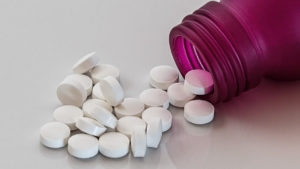
Neurontin® (Gabapentin).
Used conventionally for neuropathic pain, this drug has an off-label use for bipolar disorder, as well as restless legs syndrome. I mentioned this drug in another article I wrote about HICCUPS. If you’re taking this medication for neuropathy, you may be interested in this article I wrote entitled, Small Fiber Neuropathy, Causes and Treatments.
Minipress® (Prazosin).
This medication is used to control high blood pressure and that’s what the FDA approved it for way back in 1988. It relaxes and widens blood vessels. But doctors know that it can sometimes reduce the frequency of nightmares, not in all people but in some. There are many vets coming home with PTSD (post-traumatic stress disorder ) which causes nightmares, so this is a very important feature of the drug.
Furthermore, other interesting off-label uses include BPH (benign prostatic hypertrophy), Raynaud phenomenon, pheochromocytoma, and scorpion bites! You can read more about these unapproved indications in this ARTICLE.
Pamelor® (Nortriptyline).
Nortriptyline is FDA approved and indicated for depression. This tri-cyclic antidepressant is frequently prescribed for neuropathy and chronic pain conditions like orofacial pain. It is also used off-label to help people stop smoking. This is a very old method of treatment, and back in 1998, there was a scientific VA Study that suggested benefits for smoking cessation.
Clozaril® a.k.a. FazaClo® ODT or Versacloz® (or Clozapine).
This medication is traditionally prescribed as an antipsychotic, and it’s one of the newer “second generation” drugs. It has an off-label use to help with pediatric aggression and depression. The ARTICLE is here.
Clozapine has many off-label uses as you can see in this PAPER. One of the most profoundly beneficial uses is to help with suicidal ideation. The minutes matter with this group of people, and if a drug can help, and a doctor knows it can help then why not prescribe it for off-label use?!
⚠️ CAUTION: Clozapine may cause a blood condition called agranulocytosis, where the white blood cell counts go down. Sometimes physicians unknowingly discontinue the drug suddenly, without weaning, and this is quite dangerous and may actually cause suicidal ideation.
My caution here is that some (actually many) medications cannot be suddenly discontinued, they have to be weaned slowly or they cause dangerous rebound side effects. Just keep this information in your back pocket if you take an antidepressant, sedative/hypnotic, or antipsychotic.
Stromectol (Ivermectin).
This medication is FDA approved (was approved in 1998) for treating intestinal parasitic infections caused by pathogens such as roundworms, threadworms, and other parasites. The off-label use is for respiratory pneumonia. However in Australia, on September 10, 2021, they just BANNED its use for this indication because prescriptions increase 3 or 4-fold during recent months.
Another off-label use for the now infamous drug is scabies, which you get from skin-to-skin contact with another infected person or animal. There is a paper regarding the scabies mite treatment available HERE.
Sometimes a drug with an off-label use actually gets FDA approval. It’s unusual, but it happens. One such drug called Remdesivir (brand Veklury®) was used in an off-label manner for a year or so to treat people with C*V1D – 2019, and then in October 2020, the FDA granted its full APPROVAL. So today, it’s no longer prescribed in an “off-label” fashion, it is 100% percent FDA approved for use, at least in adults and children 12 years of age and up.
There is another drug used for rheumatoid arthritis called Actemra® (tocilizumab)… this is FDA approved to work as an immunosuppressant in autoimmune conditions. But it is used off-label to help treat C*V1D – 2019 and reduce the risk of pulmonary problems. HERE is the paper in the Journal of Medical Virology.
This drug is prescribed worldwide as an agent to reduce fever, muscle pain, and arthritis. Back in 2011, there was TALK about its off-label use for blood glucose. And today, it’s commonly self-prescribed for migraine pain as people can just go to the drug store to buy it. Whether or not this is useful, wise, or effective is not for me to say.
I am listing it here because the drug is used off-label for these purposes frequently because it is widely available without prescription to consumers. By the way, if headaches plague you, please grab a copy of my Headache Free book by CLICKING HERE.
Risperdal® (Risperidone).
This is a medication approved to treat schizophrenia or acute manic phases of bipolar disorder. The FDA approved it in 1993. Quickly thereafter, doctors found that it had benefits for other patients, so it’s used off-label to treat OCD, and some cases of autism. Doctors prescribe it for this use every day. Off-label, especially in nursing homes, risperidone is frequently prescribed for patients with Tourette’s syndrome, severe agitation due to dementia, and sometimes severe insomnia.
Pepcid (Famotidine).
This is a commonly used medication for heartburn and reflux, and it’s sold over the counter in the United States. The makers got it FDA-approved for this indication and several other related GI diseases. But when it comes to off-label uses, famotidine is prescribed to reduce gastritis symptoms associated with NSAIDs which are the most popular drugs used for mild arthritis pain. Medications in the NSAID category include blockbusters like ibuprofen and naproxen.
Namenda (Memantine).
This is a popular medication that the FDA approved in 2003, to treat Alzheimer’s disease. But practitioners all over the world prescribe to help treat symptoms of obsessive-compulsive disorder (OCD). This works because it helps modulate the release of glutamate in the body which is implicated in some cases of OCD. Another off-label use for memantine has been studied too. And this is to use it in conjunction with other medications for ADD (attention deficit disorder).
Clomid® and Serophene® (Clomiphene).
This helps a woman produce an egg, and increases the odds of pregnancy. It’s FDA approved for women, but its off-label is use is for men. The drug was originally granted a thumbs up and FDA approval in February of 1967. I was just 2 years old back then!
Today, doctors order it because it blocks estrogen hormone and increases FSH and LH hormones and this boosts testosterone production in men. The end result is improving male fertility by improving sperm count! But again, none of this is FDA approved, it’s just widely known and prescribed for the off-label benefit.
Revia® or Vivitrol® (Naltrexone).
The FDA approved this medication years ago to treat people who have dependency disorders, particularly with alcohol or opiate misuse. It’s an opiate blocker. Due to its mechanism of action, it is widely known that it can help people come off other narcotics such as codeine, morphine, and heroin. The drug does not change anything in the brain to cure the craving, but rather it blunts the euphoric action of the narcotic if it is consumed.
Now, off-label physicians know that naltrexone (especially low-dose naltrexone or “LDN” is used for people with autoimmune disorders). It’s quite common to see a patient with an autoimmune condition taking LDN 3mg at night because it helps reduce inflammation and pain in some people. It helps you tolerate yourself.
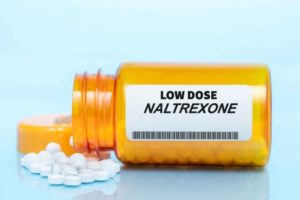
Would you like to read more about LDN? If so, here’s an ARTICLE I wrote entitled, What Your Doctor Never Told You About, But Should Have.
Here’s a WEBSITE dedicated to LDN that you can visit too. There are several books available on Amazon that outline the other off-label uses for LDN, including one book authored by Julia Schopick, and another by Linda Elsegood.
LDN may also have some activity for malignancies, and some emotional/cognitive conditions… again, these are all off-label uses, they are not FDA approved, even though the drug is ordered constantly for such purposes. It’s a well-known immunomodulator!
The list of off-label uses above is the tip of the iceberg. Many other drugs treat one condition and have FDA approval for that, yet doctors prescribe it for another condition altogether! This phenomenon is fascinating and it clearly demonstrates the importance of utilizing unapproved drugs to help with conditions that don’t respond to traditional remedies.
If you can achieve a better outcome using a drug for its off-label use, then why not? Since approximately 10 to 20 percent of all prescriptions are written for drugs and their off-label uses, it becomes more of an ethical question for some of you. In other words, would you be afraid of taking medications that are not FDA-approved? Or would this concern be minimized if your pain level was high enough to try it, for example?
In Closing
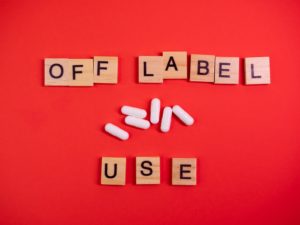
There are many questions to pose to your doctor (and I am not one, so I can’t make medical decisions for you), but if you have a candid discussion with your doctor, and try medication for its off-label use, it may possibly lead to a different clinical outcome for you. It is hard to say because all drugs, no matter what they are prescribed for, still carry risks, and side effects and they are all ‘drug muggers’ of multiple nutrients. How much should your physician tell you? Here’s an ARTICLE regarding that ethical concern.
Asking for a drug that has a relevant off-label use is something you may want to do. It’s a discussion to have with your own practitioner, that way you can weigh the risks to benefits and make an informed decision about what’s right for you. There is limited research on off-label uses because there were no clinical trials for that specific purpose.
There are case studies, and anecdotal studies of course, (and practitioners use common sense based upon the mechanism of action for drugs) but there are no large, well-designed, placebo-controlled studies for off-label drugs.

Suzy Cohen, has been a licensed pharmacist for over 30 years and believes the best approach to chronic illness is a combination of natural medicine and conventional. She founded her own dietary supplement company specializing in custom-formulas, some of which have patents. With a special focus on functional medicine, thyroid health and drug nutrient depletion, Suzy is the author of several related books including Thyroid Healthy, Drug Muggers, Diabetes Without Drugs, and a nationally syndicated column.
